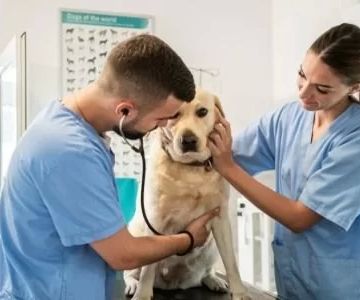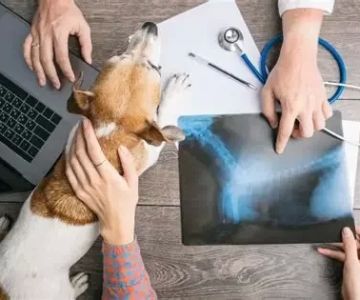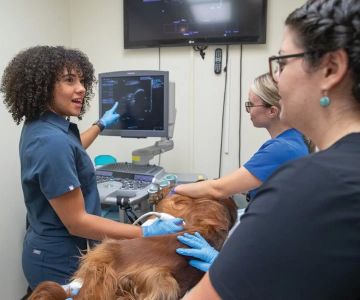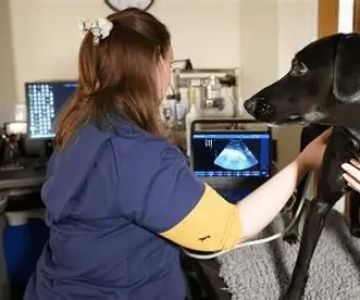- 1. What is Required to Become a Veterinarian?
- 2. The Educational Path to Becoming a Veterinarian
- 3. Skills and Competencies Required in Veterinary Careers
- 4. The Importance of Passion in Veterinary Practice
- 5. Understanding the Challenges of Veterinary Care
- 6. Advancing Your Career in Veterinary Medicine
1. What is Required to Become a Veterinarian?
To become a veterinarian, a person needs to meet several essential educational and professional requirements. At the very least, a veterinarian has to have completed a Doctor of Veterinary Medicine (DVM) degree or its equivalent. This extensive education equips veterinarians with the knowledge and skills needed to diagnose, treat, and prevent diseases in animals, ranging from household pets to farm animals and wildlife.
The process of becoming a veterinarian involves more than just attending veterinary school. Aspiring veterinarians need to undergo rigorous training, gain clinical experience, and demonstrate their ability to handle complex medical situations. This article will delve deeper into the necessary qualifications for becoming a veterinarian, the role of veterinarians, and the skills they need to provide effective care for animals.
2. The Educational Path to Becoming a Veterinarian
Becoming a veterinarian requires a significant commitment to education and training. Here's an overview of the typical path an aspiring veterinarian will follow:
2.1 Undergraduate Education
The first step to becoming a veterinarian is to complete a bachelor's degree. Although there is no specific major required, many aspiring veterinarians choose to study biology, animal science, or other related fields. This phase usually takes four years and includes courses in subjects such as chemistry, biology, physics, and mathematics, which lay the foundation for veterinary school.
2.2 Veterinary School
After earning an undergraduate degree, the next step is to apply to a veterinary school. Admission to veterinary school is highly competitive, and applicants must pass the Veterinary College Admission Test (VCAT) or the Graduate Record Examination (GRE), depending on the school. Veterinary school typically takes four years to complete and includes both classroom instruction and hands-on clinical training. Topics studied include animal anatomy, pharmacology, surgery, pathology, and diagnostic techniques.
2.3 Clinical Experience
In addition to classroom learning, veterinary students must complete significant clinical training in a supervised environment. This includes working with animals in real-world settings, performing routine procedures, and assisting with surgeries. The clinical experience ensures that students develop the practical skills necessary to handle medical situations and provide the highest level of care to animals.
3. Skills and Competencies Required in Veterinary Careers
In addition to formal education, a veterinarian must possess a variety of skills and competencies to succeed in their career. These include both technical medical skills and personal qualities that are essential in the veterinary field.
3.1 Technical Medical Skills
Veterinarians must be proficient in a wide range of medical tasks, including diagnosing illnesses, performing surgeries, administering medications, and interpreting lab results. They need to have a thorough understanding of animal physiology and the ability to apply medical knowledge to treat various species. This requires continuous learning and staying updated with the latest advancements in veterinary medicine.
3.2 Communication and Empathy
Veterinarians must also have excellent communication skills to interact with pet owners and explain treatment options, medical conditions, and preventive care. Empathy is another crucial skill, as many veterinary visits involve dealing with distressed pet owners or treating animals in pain. A compassionate approach helps veterinarians build trust with clients and create a positive environment for both animals and their owners.
3.3 Problem-Solving and Critical Thinking
Veterinarians often face challenging medical cases that require creative problem-solving and critical thinking. Whether determining the cause of an illness or making quick decisions during an emergency surgery, veterinarians must be able to analyze information, consider multiple factors, and make decisions that will provide the best outcome for the animal.
4. The Importance of Passion in Veterinary Practice
Becoming a veterinarian requires more than just technical skills; it also demands a genuine passion for animals and the desire to improve their well-being. Many veterinarians go into the field because they care deeply about animals and want to make a difference in their lives. This passion drives them to continue learning, strive for excellence in patient care, and advocate for animal welfare.
Without passion, the demanding nature of veterinary work can become overwhelming. The long hours, emotional strain, and physical challenges of the job require a veterinarian who is dedicated to their profession and committed to helping animals. Passion for the work not only improves the quality of care provided but also fosters a deeper connection with clients and their pets.
5. Understanding the Challenges of Veterinary Care
Veterinary medicine is a rewarding field, but it comes with its own set of challenges. The workload can be physically demanding, especially in busy clinics where veterinarians see multiple patients in a day. Additionally, veterinarians are often faced with emotional and ethical dilemmas, such as deciding when to euthanize an animal or dealing with pet owners who cannot afford the necessary treatment for their animals.
Another challenge is the financial burden of veterinary education. Becoming a veterinarian requires significant financial investment in terms of tuition and training. Many veterinary students graduate with substantial student loan debt, which can take years to pay off. Despite these challenges, many veterinarians find the rewards of the profession—helping animals, making a positive impact on their community, and forming strong relationships with clients—worth the effort and sacrifice.
6. Advancing Your Career in Veterinary Medicine
After obtaining a DVM or VMD degree, there are many opportunities for veterinarians to specialize in specific areas of animal care. Specializations can include fields such as surgery, dermatology, oncology, dentistry, or emergency and critical care. Continuing education is key to advancing in these fields, and many veterinarians pursue board certifications or additional training in their chosen areas of expertise.
Additionally, veterinarians can advance their careers by taking on leadership roles in veterinary practices, teaching at veterinary schools, or working in research. Those with a passion for animal care can also work with animal welfare organizations or in wildlife conservation efforts. Regardless of the path they choose, veterinarians have numerous ways to grow and expand their careers within the field of veterinary medicine.
If you’re interested in learning more about becoming a veterinarian, or you’re already in the field and looking for resources to support your practice, visit HeartCare Hub for expert advice, tools, and career resources.











